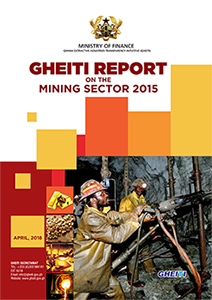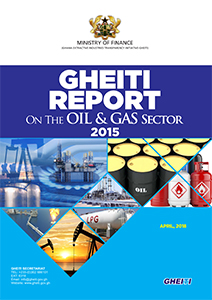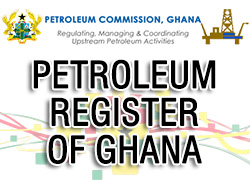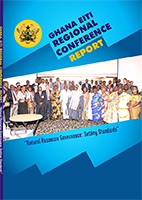| Govt's management of oil resources commended |
 |
 |
 |
|
By Lawrence Markwei & Albert Larkai THE Institute of Economic Affairs (IEA) has given the government thumps up for the progress made to enhance transparency in the management of the oil and gas resource of the country. In a report prepared by the IEA on Petroleum Transparency and Accountability Index (IEA-P-TRAC INDEX) 2011, the government scored an average of 59.7 per cent against a bench work of 60 per cent. Presenting the report at a forum in Accra on Wednesday, Prof. John Asafu-Adjaye, Senior Economist at IEA, said the study also revealed that there were however, a number of areas where further improvements could be made to raise the level of transparency and accountability. Expatiating on those areas, he said, although there was no constitutional mandate for agencies such as the Ministry of Energy, Ghana National Petroleum Corporation and the Ghana Revenue Authority to publish information such as prices, volumes production costs and gas industry "we strongly recommend frequent publication of information by all line agencies to enhance transparency and accountability". He said there was also the need to build the capacity and adequately provide resources for key public agencies that had oversight responsibility over the industry while ensuring the speedy passage of legislation such as Petroleum Exploration and Production Bill, the Right to Information Bill, Marine Pollution Bill and Local Content and Participation Framework. He said the initiative was also to enhance the level of responsibility the part of policy makers since increased transparency was associated with lower corruption and improved levels of socio-economic and human development indicators. Prof. Asafu-Adjaye explained that the data for constructing the P-TRAC Index were collected with the aid of a detailed questionnaire which distinguishes four key components of the governance of Ghana's oil and gas resources. He mentioned the four key components as revenue, expenditure and contract transparencies and transparency in the management of the oil and gas funds. Giving a breakdown of sectorial performances of the four components based on scores, Prof. Asafu-Adjaye said the average score for revenue transparency was 64.3 per cent. He said the score suggests that in relation to achieving transparency and accountability in managing the oil and gas revenue, there was considerable room for improvement. He said the average score for expenditure transparency which was 63.9 per cent, could have been higher if not for the low score of its components which was how sure on frequency in reporting. Prof. Asafu-Adjaye said there were a number of areas where improvement were required for contract transparency which scored an average of 66.7 per cent saying "public-disclosure of information on contracts including negotiated terms for exploration and production as well as the licensing process needs to be improved. He said the Oil and Gas Funds scoring an average of 44 per cent was the lowest, indicating that a lot needs to be done in terms increasing transparency in the reporting and management of the funds. Prof. Asafu-Adjaye said a lot of work had gone into preparing the index to ensure that there was a unique opportunity for current and future governments to achieve a structural transformation through the oil and gas sector since such transformation had so far been elusive with gold and other minerals. "Improving governance on oil and gas sector is crucial to ensuring that the revenues are utilised to the benefit of current and future generations," he said. He said the IEA believed that one way to promote transparency and accountability in the sector was by making information freely available to the public about activities in the sector. The Chairman of the Public Accounts Committee of Parliament, Mr. Albert Kan-Dapaah, said civil society which includes non-governmental organizations and the media must show interest in issues concerning oil and gas issues in the country. He said through such transparent information, the people would begin to understand the sector and ultimately manage their expectations. Source: Ghanaian times |










